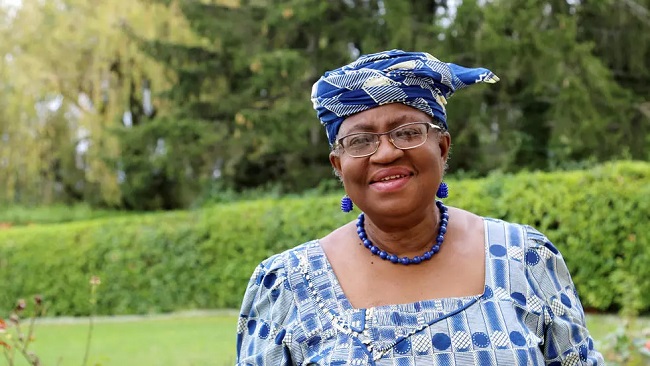8, September 2021
No milk or water: Shoppers face shortages at UK grocery stores 0
The supply chain troubles caused by Brexit and the pandemic have been so bad for Satyan Patel that the shelves at his convenience store in central London are seriously lacking water and soft drinks.
“Last week I ran out of Coca-Cola. I haven’t had large bottles of Evian for three weeks,” said Patel.
“Without products, there’s no business. With empty shelves like this, no one is going to come in the shop anyway,” he added.
A wide range of businesses have suffered through shortages for several months in the UK — from milkshakes at McDonald’s to beer at a pub chain to mattresses at Ikea.
But shoppers are also facing empty shelves for things as basic as water and milk at UK supermarkets and grocery stores.
The coronavirus crisis has severely disrupted the global supply chain, but Britain’s divorce from the European Union late last year has exacerbated the problem in the UK.
Shops are not getting products delivered to them as rules making it harder to hire EU citizens has left haulage companies with a drastic shortage of lorry drivers.
Many people who returned to their home countries from Britain during the lockdown have not returned.
Co-op, a cooperative supermarket group, said it was “impacted by some patchy distribution” to its deliveries but it was working with suppliers to re-stock quickly.
The group said it was recruiting 3,000 temporary workers “to keep depots working to capacity and stores stocked as quickly as possible”.
– Where’s the milk? –
According to recent estimates, the UK currently faces a shortage of about 100,000 lorry drivers.
“We had already decided to reduce our stock because of Covid… but now we’re finding it hard to get some products as well because they’re just not available,” Patel said.
At a supermarket near his store, the soft drinks aisle was a little short of bottles and cans but other shelves were full.

But 22-year-old sales assistant Toma said the situation was grim.
“We don’t have stock, we have nothing in our warehouse,” said Toma, who declined to give her last name.
“We have gaps everywhere,” she said. “Sometimes we receive only a certain amount (of some products). We don’t even have water.”
The shortages began when the pandemic hit and got worse after Brexit came into force on January 1, Toma said.
Some customers complain to supermarket staff and “say it’s us to blame”, she added.
At another major supermarket in southeast London, water bottles were sparse and milk was missing from shelves.
Frozen-food group Iceland and retail giant Tesco have warned of Christmas shortages.
Iceland head Richard Walker said the company has reduced deliveries as it has 100 fewer drivers than it needs.
“Every day we are missing around 10 percent of the stock we have ordered into our depots,” he wrote in a blog, adding that “when things were at their worst” its sole bread supplier was unable to deliver to as many as 130 stores per day.
– ‘Perfect storm’ –
Shortages of goods in the UK “will probably last for a while and may even intensify further”, according to a note by Capital Economics, a research consultancy.
A report this week from the Confederation of British Industry cited the Road Haulage Association as saying it would take at least 18 months to train enough Heavy Goods Vehicle (HGV) drivers to replace those who have left.
For the CBI, the dual effects of Brexit and Covid-19 are a “perfect storm”.

Stock levels in relation to expected sales fell by more than 20 percent to a record low across the retail and distribution sector in August, according to the CBI.
The group has urged the government to be more flexible on immigration and add skilled lorry drivers to a list of professions that are short on workers.
Road transport companies and businesses dependent on deliveries are offering bonuses and higher wages in an attempt to retain drivers, but the moves have raised concern that they could contribute to rising inflation.
Ryan Koningen, a 49-year-old project manager at a company in the City of London, said his colleagues often discussed the situation and “the question of costs: will they rise because drivers are paid premiums?”
He too said he had noticed shortages of “day-to-day products”.
Source: AFP


























25, December 2021
More than 4,500 flights cancelled or delayed due to Omicron variant 0
Over 4,500 flights were cancelled around the world by Saturday and thousands more were delayed as the highly infectious Omicron variant disrupted holiday travel, according to tracking website Flightaware.
One route, however, was thankfully not affected: Santa was on track delivering presents to children across the globe, air defense officials assured US President Joe Biden.
According to Flightaware.com, at least 2,000 flights were cancelled worldwide on Christmas Day, including roughly 700 originating from or headed to US airports, with more than 1,500 delays as of 0720 GMT.
On Friday, there were around 2,400 cancellations and almost 11,000 delays. The site also reported over 600 cancellations for Sunday.
Pilots, flight attendants and other staff have been calling in sick or having to quarantine after exposure to Covid, forcing Lufthansa, Delta, United Airlines and many other carriers to cancel flights during one of the year’s peak travel periods.
Flightaware data showed United cancelled around 200 flights on both Friday and Saturday, or 10 percent of those that were scheduled.
“The nationwide spike in Omicron cases this week has had a direct impact on our flight crews and the people who run our operation,” United said in a statement on Friday.
“As a result, we’ve unfortunately had to cancel some flights and are notifying impacted customers in advance of them coming to the airport,” the airline said, adding that it was working to rebook passengers.
Similarly, Delta cancelled at least 260 flights Saturday and around 170 on Friday, saying it has “exhausted all options and resources — including rerouting and substitutions of aircraft and crews to cover scheduled flying.”
“We apologize to our customers for the delay in their holiday travel plans,” the company said.
Eleven Alaska Airlines flights were axed, after employees said they were potentially exposed to Covid-19 and had to self-isolate in quarantine.
The cancellations added to the pandemic frustration for many Americans eager to reunite with their families over the holidays, after last year’s Christmas was severely curtailed.
Chinese airlines accounted for the highest number of cancellations with China Eastern scrapping around 480 flights or over 20 percent of its flight plan, and Air China grounding 15 percent of its total scheduled departures at around 0720 GMT Saturday.
Huge travel bump
According to estimates from the American Automobile Association, more than 109 million Americans were scheduled to travel by plane, train or automobile between December 23 and January 2, a 34 percent increase since last year.
But most of those plans were made before the outbreak of the Omicron variant, which has become the dominant strain in the United States, overwhelming some hospitals and healthcare workers.
Luckily, Omicron did not affect Santa’s travel plans, according to the North American Aerospace Defense Command (NORAD), which has tracked St. Nick’s Christmas journey for over 60 years.
Major General Eric Kenny, commander of the Canadian NORAD region, told AFP that Santa had distributed over two billion gifts and was above Pakistan around 1800 GMT.
“Santa is doing very well so far,” Kenny said. “He’s been at it for many hours already and will go throughout the evening as well.”
Biden and First Lady Jill Biden also spoke to NORAD officials via video conference Friday to ensure Father Christmas’ trip was going smoothly.
Biden then spoke, also via video call, to several American families, asking children what presents they wanted and telling them that they had to be in bed before midnight, otherwise Santa would not come.
But in a sign of deep political divisions plaguing American society, the event then took a sour turn, when a father, to whom Biden had just wished happy holidays, launched an insult at him.
According to journalists present at the event, the father said “Merry Christmas” followed by “Let’s go Brandon!” The phrase has been used by supporters of Donald Trump as a euphemism for a derogatory remark against the current president.
Source: AFP